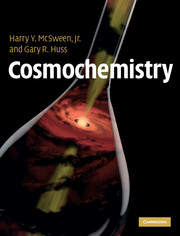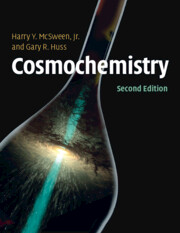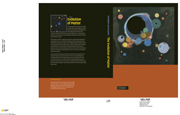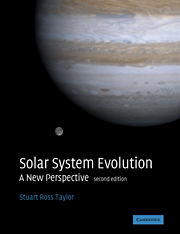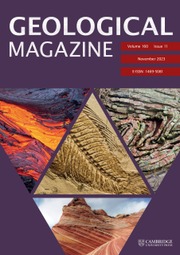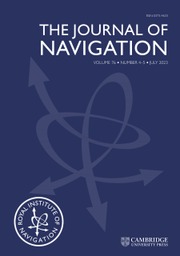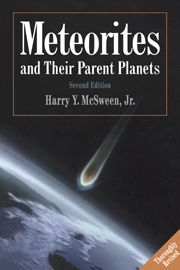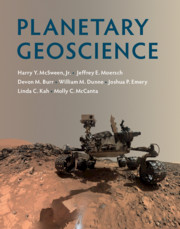Cosmochemistry
How did the Solar System's chemical composition evolve? This textbook provides the answers in the first interdisciplinary introduction to cosmochemistry. It makes this exciting and evolving field accessible to undergraduate and graduate students from a range of backgrounds, including geology, chemistry, astronomy and physics. The authors - two established leaders who have pioneered developments in the field - provide a complete background to cosmochemical processes and discoveries, enabling students outside geochemistry to understand and explore the Solar System's composition.
Topics covered include:
- synthesis of nuclides in stars
- partitioning of elements between solids, liquids and gas in the solar nebula
- overviews of the chemistry of extraterrestrial materials
- isotopic tools used to investigate processes such as planet accretion and element fractionation
- chronology of the early Solar System
- geochemical exploration of planets
Boxes provide basic definitions and mini-courses in mineralogy, organic chemistry, and other essential background information for students. Review questions and additional reading for each chapter encourage students to explore cosmochemistry further.
- Interdisciplinary approach provides a wide range of students with the tools to explore the chemistry of the Solar System
- Review questions in each chapter encourage students to test their new knowledge
- Other pedagogical features include further reading, boxes containing key definitions, mini-courses in essential topics, and an appendix describing analytical techniques used in cosmochemistry
Reviews & endorsements
"A comprehensive treatment of the field of Cosmochemistry has been lacking and is long overdue. Hap McSween and Gary Huss have written a thorough and thoroughly enjoyable book that fills this gap. A really comprehensive, highly readable and overall first rate book. I highly recommend it to any scientist with interests in the chemistry and origins of solar systems. There is no doubt that I will adopt it for my own graduate course." Scott M. McLennan, Professor of Geochemistry, State University of New York, Stony Brook
"This new book by Hap McSween and Gary Huss, two highly acclaimed scientists in the field, takes on the difficult task of making the observations and core concepts of cosmochemistry clearly understandable to a non-specialized audience. The scope is broad, the pace pleasant, so this book will certainly be a very useful reference for introductory classes on the origin of the Solar System." Professor Francis Albarède, Ecole Normale Supérieure de Lyon
"This textbook provides a comprehensive overview of the modern field of cosmochemistry. A diverse range of topics … are covered in a logical and coherent manner. … This book should be considered indispensable for any student in the Earth and Planetary Sciences. It also serves as an essential reference for any researcher interested in planetary materials and the origins of planetary systems." Professor Dante S. Lauretta, Lunar and Planetary Laboratory, University of Arizona, Tucson
"The production is clean and economical, and the editing is first rate. Valuable as a textbook or supplement to the study of how the material universe came to be. Summing Up: Highly recommended." T.R Blackburn, formerly, American Chemical Society
"To introduce a discipline so complex and diversified as cosmochemistry to a wide audience is rather difficult. The authors have succeeded in writing a comprehensive book on this matter that has turned out to be very attractive to read. I and some of my students were amazed at the direct style used to explain even extremely complex facts. Definitely, a compilation like this is useful not only to undergraduate and graduate students but also to researchers from related fields." Meteoritics & Planetary Science
"The production is clean and economical, and the editing is first rate. Valuable as a textbook or supplement to the study of how the material universe came to be. ...Highly recommended." CHOICE
“… the authors present a comprehensive overview of all aspects of modern cosmochemistry, including its historical aspects…Writing such a book has been seen as a difficult task by many scientists and accordingly, the positive outcome has been praised especially for being comprehensive yet coherent and accessible. The quality of the print, the paper and the book as a whole is excellent. This book must be recommended particularly to undergraduate and graduate students in the fields related to cosmochemistry. It is, however, also a fascinating read for experts in the field, especially due to the presentation of historical aspects.” – Manuel Vogel, Contemporary Physics, August 2011
Product details
May 2010Adobe eBook Reader
9780511731143
0 pages
0kg
221 b/w illus. 36 tables 75 exercises
This ISBN is for an eBook version which is distributed on our behalf by a third party.
Table of Contents
- Preface
- 1. Introduction to cosmochemistry
- 2. Nuclides and elements – the building blocks of matter
- 3. Origin of the elements
- 4. Solar System and cosmic abundances – elements and isotopes
- 5. Presolar grains – a record of stellar nucleosynthesis and processes in interstellar space
- 6. Meteorites – a record of nebular and planetary processes
- 7. Cosmochemical and geochemical fractionations
- 8. Radioisotopes as chronometers
- 9. Chronology of the early Solar System
- 10. The most volatile elements and compounds – organic matter, noble gases, and ices
- 11. Chemistry of anhydrous planetesimals
- 12. Chemistry of comets and other ice-bearing planetesimals
- 13. Geochemical exploration of planets – Moon and Mars as case studies
- 14. Cosmochemical models for the formation of the Solar System
- Appendix: some analytical techniques commonly used in cosmochemistry
- Index.

